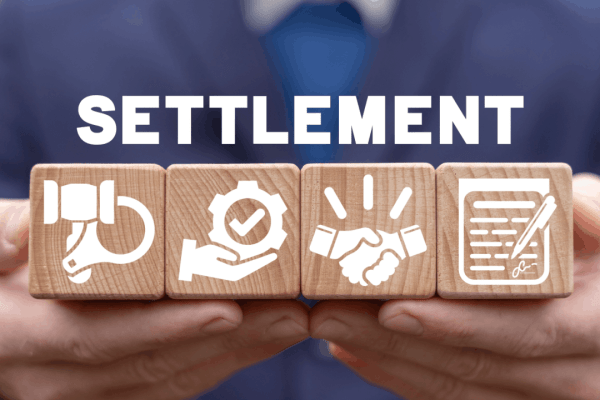
How to Negotiate a Car Accident Injury Settlement | Your Complete Guide
How to Negotiate a Car Accident Injury Settlement
Understanding how to negotiate a car accident injury settlement can mean the difference between receiving fair compensation and settling for far less than you deserve. This comprehensive guide will walk you through strategies that may help accident victims during settlement negotiations while avoiding common issues that may arise during negotiations.
Successful settlement negotiations require preparation, documentation, and strategic timing. Most car accident injury settlements are resolved through negotiation rather than litigation, making these skills essential for protecting your financial recovery.
Essential Documentation: Building Your Settlement Foundation
Proper documentation forms the backbone of any successful car accident injury settlement negotiation. Start collecting evidence immediately after your accident, including police reports, medical records, witness statements, and photographic evidence of vehicle damage and injuries.
The National Highway Traffic Safety Administration emphasizes that detailed accident documentation significantly impacts settlement outcomes. Medical documentation should include emergency room visits, diagnostic tests, treatment plans, and ongoing therapy records. Keep receipts for all accident-related expenses, including vehicle repairs, rental cars, and lost wages.
Insurance adjusters scrutinize every detail when evaluating settlement offers. Complete documentation demonstrates the severity of your injuries and validates your compensation demands. Professional legal guidance can help ensure you collect all necessary evidence before beginning negotiations.
Strategic Timing: When to Start Settlement Negotiations
Timing plays a crucial role in how to negotiate a car accident injury settlement effectively. Never rush into negotiations before reaching maximum medical improvement (MMI). Starting negotiations too early often results in inadequate settlements that don’t account for long-term medical needs or complications.
The Consumer Financial Protection Bureau recommends waiting until you fully understand your injury’s impact on your life and finances. This includes ongoing medical treatment, physical therapy requirements, and potential future complications that may arise.
Most experienced attorneys suggest beginning settlement discussions only after completing initial treatment phases. This approach ensures your settlement demand reflects the true scope of your damages and prevents leaving money on the table due to premature negotiations.
Proven Negotiation: Maximizing Your Settlement Offer
Effective settlement negotiation starts with calculating your total damages accurately. Include medical expenses, lost wages, property damage, pain and suffering, and future medical costs. Research similar cases in your jurisdiction to establish reasonable settlement ranges.
Present your initial demand strategically based on your documented damages. Insurance companies expect negotiation, so starting too low undermines your position. Support every demand with concrete evidence and avoid emotional appeals that may weaken your credibility.
The Department of Transportation notes that preparation can influence negotiation outcomes. Document all communications with insurance adjusters and carefully evaluate any initial offer, which is typically designed to minimize the insurer’s payout.
Professional legal representation often proves invaluable during complex negotiations. Experienced attorneys understand insurance company tactics and can leverage legal expertise to secure optimal outcomes when learning how to negotiate a car accident injury settlement becomes overwhelming.
Final Settlement: Reviewing Settlement Considerations
Once you master how to negotiate a car accident injury settlement, review all settlement agreements carefully before signing. Review whether the settlement amount addresses current and anticipated future expenses.
Settlement agreements are typically final and prevent future claims related to the accident. Verify that medical liens are properly addressed and that you understand the tax implications of your settlement. Most personal injury settlements are not taxable, but punitive damages may be subject to taxation.
Consider whether the settlement truly compensates for your losses or if pursuing litigation might yield better results. While most cases settle out of court, some situations warrant taking your case to trial for maximum compensation.
Take Action Today: Get Professional Settlement Help
Don’t navigate complex car accident injury settlement negotiations alone. Insurance companies employ experienced adjusters and legal teams whose primary goal is minimizing payouts to accident victims like you.
Professional legal consultation may assist you during the settlement process. Contact our experienced team today for a free case evaluation and learn how we can assist with your car accident injury settlement.
Frequently Asked Questions
1. How long does it take to negotiate a car accident injury settlement?
Most car accident injury settlements take 3-6 months to negotiate, depending on injury severity and case complexity. Simple cases may resolve faster, while complex injuries requiring extensive treatment can take longer.
2. What is a fair car accident injury settlement amount?
Fair settlements typically cover all medical expenses, lost wages, property damage, and pain and suffering. Settlement amounts vary based on injury severity, liability factors, and local jurisdiction precedents.
3. Should I accept the first settlement offer?
Never accept the first settlement offer from insurance companies. Initial offers are typically 10-30% lower than fair settlement amounts and serve as starting points for negotiations.
4. Can I negotiate my own car accident injury settlement?
While possible, self-representation often results in lower settlements. Insurance adjusters have extensive negotiation experience and legal knowledge that most accident victims lack.
5. What happens if I reject a settlement offer?
Rejecting settlement offers allows continued negotiations or pursuing litigation. However, going to trial involves additional costs, time, and risks that should be carefully considered.
Key Takeaways
- Document everything thoroughly before starting settlement negotiations to strengthen your position
- Wait until reaching maximum medical improvement before beginning how to negotiate a car accident injury settlement discussions
- Calculate total damages including future medical costs and lost earning capacity
- Start with demands 25-50% higher than your target settlement amount to allow negotiation room
- Consider professional legal representation to maximize settlement outcomes and protect your rights



